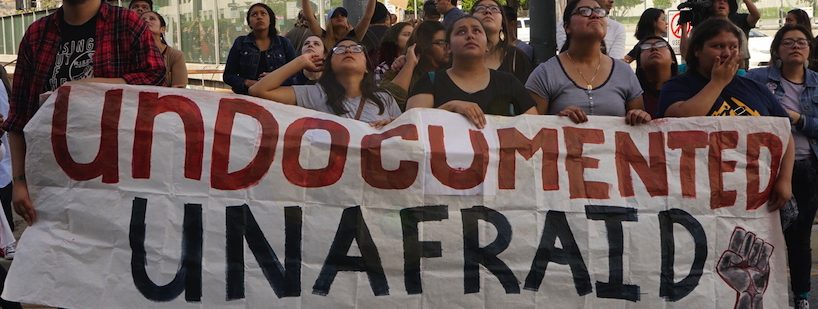Organizing for Access to Higher Education for Undocumented Students
In Denver, the state of Colorado, and nationally, many communities have joined to organize for education access for undocumented students. There has been a focus on making higher education accessible, as past legislation has ensured a K-12 education for undocumented children, though no such national policy has guaranteed higher education for undocumented students. In a world where a college education is increasingly important for career advancement, the need to education equity is great. In most major cities across the country, grassroots organizations have been forming since the 1990s and 2000s, some even forming in the past few years, to fight for immigration justice and often specifically education equity for immigrant and undocumented students. Colorado, and Denver specifically, has high numbers of immigrants and undocumented students, making it a hotbed of organizing.
Grassroots organizations working for access to higher education for undocumented students include students, parents, teachers, other educators, and lawyers. They have formed groups solely of students, groups with adult support, adult focused groups with student-led initiatives, groups of educators fighting for their students, and many other combinations. Some ways in which they have organized include building community, relationships, and support, advocating for policy changes, against deportation, and widespread immigration reform, and rallying together to gain public support and vocalize pressure against the Trump administration recently.
Some major intersecting issues to monetary access to higher education for undocumented students include immigrant rights, stopping deportations, and pathways to citizenship. Additionally, issues of racism, poverty, xenophobia, sexism, language-barriers, and culture-barriers among others intersect this issue often on a personal, community-scale, and nationwide level.
Grassroots organizing around this issue in the past few decades has resulted in stronger communities and resources for undocumented students as well as initiatives by many states including Colorado to require that colleges charge in-state tuition for undocumented students. These actions have occurred while the national debate for immigrant rights has wavered with the passing and repeal of DACA and the debate over the DREAM Act. I believe that continued efforts will both provide more individual support for undocumented students and ultimately result in nationwide reform ensuring access to higher education for all students.
The main obstacle organizers are currently facing stems from the federal administration. On a national scale, conservative efforts have thwarted immigration reform in Congress while also increasing Immigration and Customs Enforcement (ICE) across the country.
For those involved in the organizing, it seems that many have built valuable connections and gained support. Additionally, with social media and increased press coverage on immigration issues since Trump took office, nationwide connection and public awareness on immigration issues has increased. Both building local and nationwide communities has significantly elevated undocumented students and organizers in Colorado and across the US.
